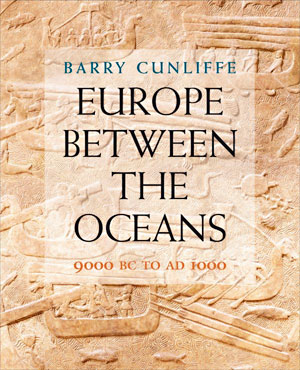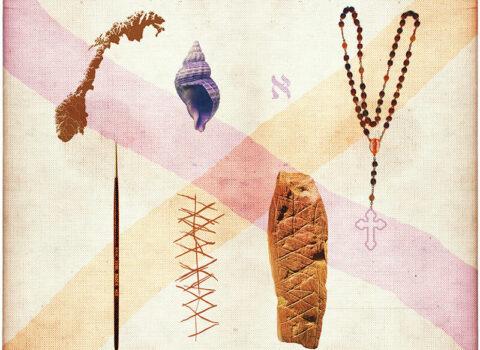
“The westerly excrescence of the continent of Asia, which we call Europe, came to dominate the world during the course of the second millennium AD.” This sentence begins a book to be published next week, Europe Between the Oceans (Yale), by Barry Cunliffe. I suggest that all but the most ardent button-pusher should be seduced by a book that begins this way.
“The westerly excrescence of the continent of Asia” is a phrase that feels like bathhouse leer: loaded with intimation, but withholding information. What, exactly, is the author hiding under his “excrescence”? Climbing, rung by rung, the word’s definitional ladder, leads not to denomination, but only to greater perplexity. My OED tells me that an “excrescence” is both “1. something that grows out, a natural growth or appendage;” and “2. an abnormal, morbid, or disfiguring outgrowth.”
As we overtake the comma, we reach “which we call Europe”—and arrive at our excrescence. Cunningly, Cunliffe has tagged Europe thus: both normal and not so. In the space of not-quite a sentence, and with special thanks to a well-chosen word, we readers understand that a revisionist history is in our hands, one that does not begin, sleepily, “This is a revisionist history of Europe.” Rather it begins, alertly, as such a history.
I’m only in the first half of the oversized, 500-page Europe Between the Oceans. So far, it tells the story of Europe’s rise as a matter more of matter than of art: how land and water tell, if not the whole story of civilization, somewhere between much and most. Smartly and beautifully, Cunliffe has jammed his story with pictures, maps, drawings, and every kind of rarity. Rarest of all, though, seems to be its author’s equal command of landmasses and language.
































































































